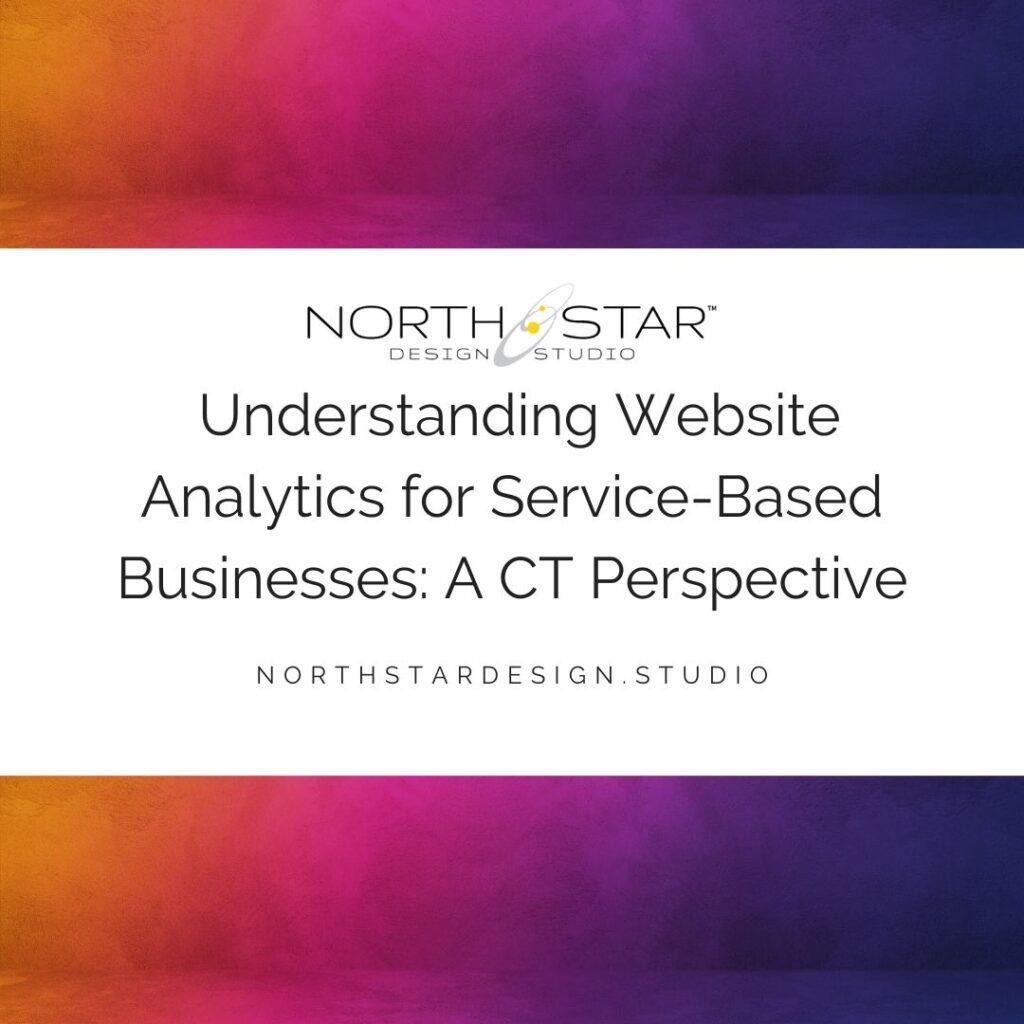Your Digital Decoder Ring
You’re juggling the demands of running a service-based business in Connecticut—kudos to you! Now, how about adding some strategic finesse to all that hustle? Meet website analytics, your new best friend in understanding what the heck is going on with your online presence.
Why Should You Care About Website Analytics?
Think of your website as a digital storefront. Imagine if you had a superpower that allowed you to know exactly how people moved around your store, what caught their eye, and what made them walk out. That’s what website analytics does for you. It’s not just about accumulating data; it’s about understanding that data to improve your business operations.
Let’s break it down further. Say you’re a plumbing service in Connecticut. Your website tells you that most of your visitors are searching for “emergency plumbing CT” before landing on your page. That’s a gold nugget of information! Now you can tailor your services, and even specific offers, to match this urgent need.
But the benefits don’t stop there. Website analytics can show you what days and times your site receives the most traffic. You can use this information to schedule service promotions or blog posts to go live during these peak times, increasing their visibility and impact. It can even tell you what devices people are using to visit your site, helping you optimize the user experience across platforms.
Bottom line? Understanding your website analytics can offer you critical insights into customer behavior, service demand, and even the effectiveness of your marketing campaigns. In the increasingly competitive service industry in Connecticut, these insights are not just useful; they’re essential for success.
Recommended Reading: Does Bounce Rate Affect Google Ranking? A Complete Guide

DIY Analytics: What Metrics Should You Track?
Starting your journey into website analytics can feel overwhelming. There are so many metrics and terms flying around—click-through rates, page views, session durations—that it might feel like you’re trying to read a foreign language.
But don’t sweat it; you don’t need to be an analytics guru to glean valuable insights for your service-based business. The key is to start small and focus on a handful of metrics that can make a real difference to your bottom line.
Specifically, you should hone in on metrics like Traffic Sources to know where your audience is coming from, Bounce Rate to understand if your site is retaining visitors, and Conversion Rate to gauge how effective your website is at turning visitors into customers. Tracking these metrics offers a concise but powerful snapshot of your website’s performance, letting you make data-driven decisions without getting lost in the numbers.
- Visitor Behavior: Are visitors scrolling, clicking, or bouncing?
- Time on Page: How long are they sticking around?
- Traffic Sources: Are they coming from Google, social media, or directly?
- Conversion Rate: Are they taking the actions you want them to take?
Recommended Reading: Why Turning Traffic into Customers is the Real Win: A Guide to Website Conversions

Cracking the Code: Traffic Sources
When you first peek at your analytics dashboard, you might be tempted to focus solely on the number of visits your site gets. But where those visits come from can be just as crucial, if not more so. Understanding your traffic sources isn’t just a numbers game; it’s about analyzing the quality of that traffic, too.
Are visitors discovering you through organic search, clicking through from social media, or arriving via backlinks from other sites? Each source brings a different type of user, with different needs and expectations. For instance, organic search visitors might be looking for specific services, while social media traffic might be more interested in your company culture or promotions.
By cracking the code on your traffic sources, you can tailor your content, offers, and even your services to meet the unique needs of these diverse audience segments.
- Organic Search: People who find you via Google or other search engines.
- Direct Traffic: Those who type in your URL directly.
- Social Media: Visitors clicking through from your social media profiles.
The Power of Conversion Rates
Conversion rates are the Holy Grail of website analytics. It’s not just about who’s coming to the party; it’s about who’s staying, engaging, and most importantly, taking action. Whether that action is filling out a contact form, signing up for your newsletter, or making a purchase, conversions are the true measure of a site’s effectiveness.
Now, setting up and tracking conversion metrics is a specialized skill, and it’s here that even seasoned DIY-ers might find the value in expert help. While North Star offers a variety of on-page services, like keyword research and SEO optimization, we don’t directly handle the intricacies of conversion metrics.
However, if this is an area you want to dive deep into, we have fantastic recommendations for marketing agencies that specialize in this. Just ask us, and we can point you in the right direction to ensure you’re tracking and leveraging conversion data effectively.

Keep it Tidy: Maintenance Matters
You may think of website maintenance as the digital equivalent of mopping the floors or dusting the shelves, but it’s so much more than that. Think of it as regularly servicing a high-performance car; you wouldn’t ignore the warning lights and expect it to run efficiently, would you?
Regular monthly maintenance is essential to make sure that all the plugins are updated, the site speed is optimal, and there are no broken links or 404 errors that can frustrate visitors and lower your search engine rankings. But the importance goes beyond the technical. Maintenance also ensures that your site’s content is fresh and relevant, improving your SEO and keeping your audience engaged.
Good maintenance practices also have a direct impact on your analytics. Accurate data collection is only possible if your website is in top shape. Any glitches or slowdowns can distort your metrics and provide misleading insights. So, while it may seem like a chore, monthly maintenance is a non-negotiable aspect of responsible website ownership. It safeguards your business reputation and ensures that your website remains a robust, reliable tool in your marketing arsenal.
Essential WordPress Maintenance
Conclusion: It’s DIY Time!
Website analytics isn’t just about numbers. It’s about using those numbers to make your business boom. The real magic happens when you apply what you’ve learned, using tools and techniques like keyword research, competitor analysis, backlink reporting, SEO-optimized content writing, and yes, even monthly maintenance.





